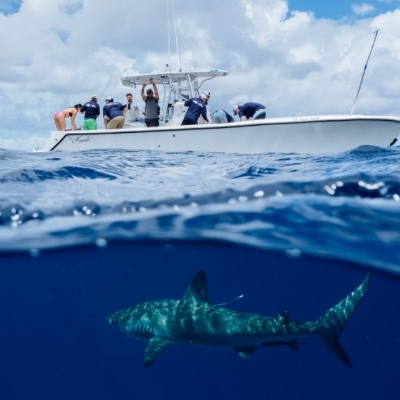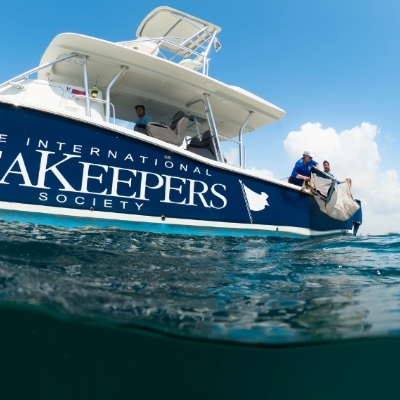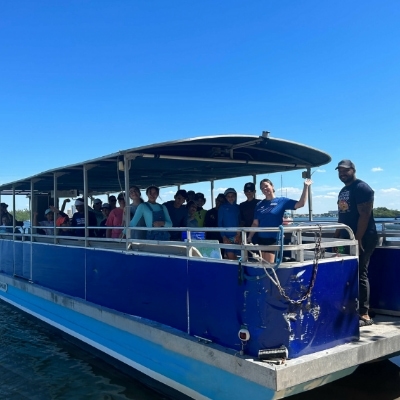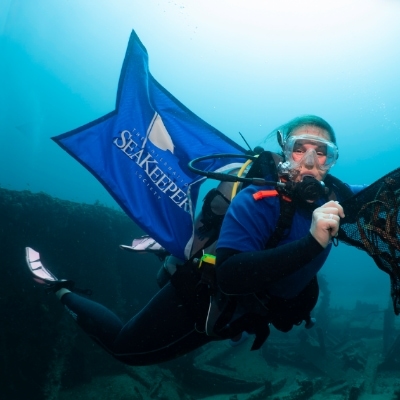Background:
Understanding how marine larvae travel through ocean currents is a key challenge in marine biology. This knowledge helps predict population growth, evolution, and the survival of marine species, which is vital for effective conservation.
Traditional methods like genetic parentage tagging are precise but costly and limited to a few species and regions. Recent advancements using Isolation by Distance (IbD) models provide a more practical and affordable alternative. These models estimate how far larvae travel by analyzing genetic differences across locations. They work for a broader range of species and offer time-integrated insights into larval movement.
The next step is to combine these genetic models with ocean current simulations to create realistic predictions of larval dispersal. This "data assimilation" approach will improve Marine Protected Area (MPA) design, ensuring these areas support the connectivity needed for species' long-term survival.
By integrating cutting-edge methods, this research aims to develop MPA networks that better withstand environmental changes, safeguard biodiversity, and support sustainable fisheries management.
Mission:
Objectives
-
Infer Larval Dispersal with IbD Models
By analyzing genetic differences, the team will estimate the average dispersal distance of six reef fish species across ten sites per archipelago. These results will guide more accurate larval dispersal predictions.
-
Incorporate Empirical Data into Ocean Models
Researchers will use high-resolution ocean current models to simulate larval movement over time. These simulations will integrate biological traits like larval duration and fecundity to test how species adapt and connect across seascapes.
-
Design Resilient Conservation Networks
Using 20 years of simulated larval data, the researchers will create MPA designs that adapt to changes in larval dispersal. This innovative approach will enhance reef conservation by supporting connectivity and ecosystem resilience.
Research Impacts & Applications:
This research will be shared with students at various levels. Postgraduate students and early-career researchers are integral members of the research team, actively participating in fieldwork, lab work, and data analysis. The project will also create opportunities for master’s students to develop data analysis and outreach projects. Additionally, the academic team will incorporate the project’s findings into science-led teaching, sharing materials such as photo documentation and insights into marine connectivity with large cohorts of undergraduate students. This ensures the research reaches and benefits a wide range of learners.
Program Partners:
- https://www.leeds.ac.uk/
- https://biologicalsciences.leeds.ac.uk/school-of-biology/staff/24/dr-maria-beger
- https://www.ucf.edu/
- https://sciences.ucf.edu/biology/person/michelle-gaither/
- https://www.psu.edu/
- https://science.psu.edu/bio/people/cdh5313
- https://www.aims.gov.au/about/our-people/dr-eric-treml
- https://cecilefauvelotird.wordpress.com/
Relevant Scientific Publications:
- https://www.nature.com/articles/ncomms9208
- https://www.cell.com/trends/ecology-evolution/fulltext/S0169-5347(22)00222-1
- https://conbio.onlinelibrary.wiley.com/doi/full/10.1111/cobi.14008
- https://onlinelibrary.wiley.com/doi/abs/10.1111/mec.12031
- https://onlinelibrary.wiley.com/doi/full/10.1111/geb.12905
- https://onlinelibrary.wiley.com/doi/full/10.1002/ece3.6566
- https://conbio.onlinelibrary.wiley.com/doi/full/10.1111/cobi.14038
- https://www.journals.uchicago.edu/doi/abs/10.1086/676505
- https://www.nature.com/articles/s41467-023-37550-5
Get Involved
If you’re interested in learning more about this specific program opportunity, please reach out to our team below
to find out more about this program or get involved in other opportunities with SeaKeepers.
Explore More Opportunities

At-Sea Opportunities
Browse other research opportunities around the world to support oceanographic research through our other branches of programming.

Citizen Science Opportunities
Browse other citizen science opportunities around the world to support scientists in their research.

Education Opportunities
Browse education opportunities in South Florida, the United Kingdom and the South Pacific to support educational outreach for students.

Community Opportunities
Browse community engagement opportunities in South Florida, the United Kingdom and the South Pacific to support local social responsibility and policy change.
